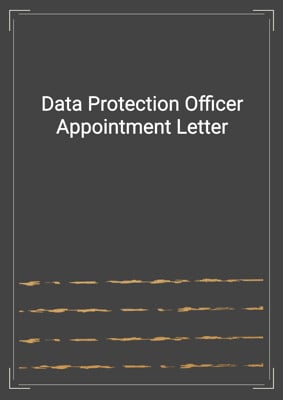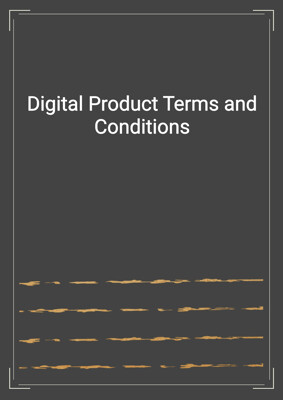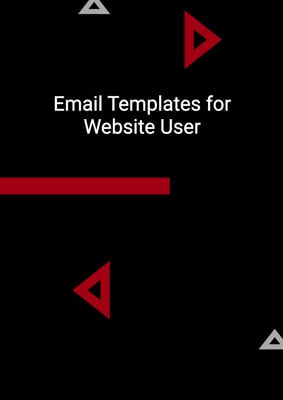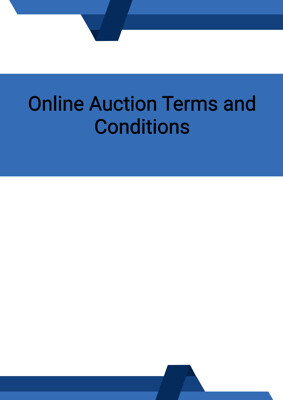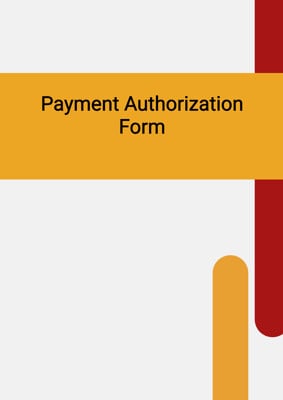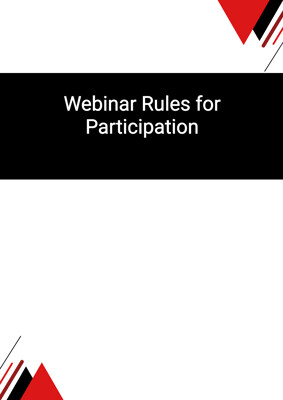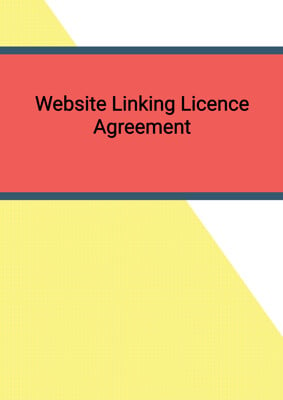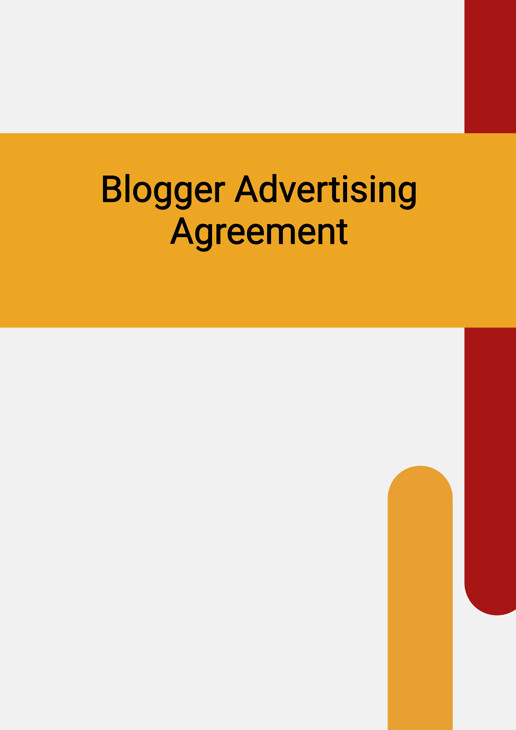
Blogger Advertising Agreement
Neutral
Facilitate successful partnerships between bloggers and advertisers using our Blogger Advertising Agreement template. This versatile tool provides a clear framework for defining terms, deliverables, compensation, and expectations, ensuring a smooth and transparent collaboration that benefits both parties.
How to Tailor the Document for Your Need?
01
Create Document
Fill in the details of the parties. You can click the "Fill with Member’s Information" button to complete it with information saved to your account.
02
Fill Information
Please fill in any additional information by following the step-by-step guide on the left hand side of the preview document and click the "Next" button.
03
Get Document
When you are done, click the "Get Document" button and you can download the document in Word or PDF format.
04
Review Document
Please get all parties to review the document carefully and make any final modifications to ensure that the details are correct before signing the document.
Document Preview
Document Description
A Blogger Advertising Agreement is a legal contract that outlines the terms and conditions under which a blogger or influencer will create and publish content for a brand or company as a form of advertising or promotional activity. This type of agreement is commonly used in influencer marketing and content marketing campaigns. It clarifies the responsibilities, expectations, compensation, and other important aspects of the collaboration between the blogger and the brand.
Key components typically included in a Blogger Advertising Agreement are:
1. Parties Involved: The agreement identifies the parties entering into the contract – the blogger/influencer and the brand/company.
2. Scope of Work: This section outlines the specific tasks, content creation, and promotional activities that the blogger will undertake as part of the campaign. It may include requirements for blog posts, social media posts, videos, photos, and any other content formats.
3. Content Guidelines: Clear guidelines for the type of content, tone, style, and messaging that the blogger should follow to align with the brand's image and values.
4. Timelines: Specific dates and deadlines for content creation, review, and publication. This can include the duration of the campaign as well.
5. Compensation: Details about the compensation the blogger will receive, including payment amounts, schedule, and any additional perks such as free products or services.
6. Rights and Ownership: Specifies the ownership of the content created – whether the brand or the blogger retains ownership, and how the content can be used by both parties.
7. Disclosure and Compliance: Clearly states that the blogger will comply with all applicable laws and regulations, including disclosing the sponsored nature of the content as required by advertising disclosure guidelines.
8. Confidentiality: Addresses the confidentiality of any non-public information shared between the parties during the collaboration.
9. Termination: Specifies the conditions under which either party can terminate the agreement, including reasons and notice periods.
10. Indemnification: Outlines the responsibilities of each party to indemnify the other against any legal claims arising from the content or the collaboration.
11. Governing Law: Specifies the jurisdiction whose laws will govern the agreement in case of any disputes.
12. Miscellaneous Clauses: These can include clauses related to force majeure (unforeseen events), amendments to the agreement, entire agreement clause, and other legal provisions.
It's essential for both parties to carefully review and negotiate the terms of the Blogger Advertising Agreement to ensure a clear understanding of their roles and obligations. If you're not familiar with legal contracts, it's recommended to seek legal advice to ensure that the agreement is comprehensive and legally sound.
How to use?
1. **Familiarize Yourself**: Thoroughly read and understand the Blogger Advertising Agreement template to grasp its content and purpose.
2. **Customization**: Tailor the template to match the specific collaboration details. This includes inserting the names of the parties, relevant dates, and any campaign specifics.
3. **Objectives and Expectations**: Clearly define the goals of the collaboration and the expectations from both the blogger and the advertiser. This sets the groundwork for a mutual understanding.
4. **Deliverables**: Outline what content or services the blogger will provide, such as blog posts, social media mentions, or videos.
5. **Compensation**: Specify how the blogger will be compensated, whether through monetary payment, products, affiliate commissions, or a combination.
6. **Content Guidelines**: If applicable, provide guidance on the style, tone, and key messages that the content should adhere to.
7. **Approval Process**: Describe the process for reviewing and approving content before it's published, ensuring that both parties have an opportunity to provide feedback.
8. **Rights and Usage**: Address how the content will be used – whether the advertiser can repurpose it and under what conditions.
9. **Transparency and Disclosure**: Emphasize the importance of transparent disclosure of the partnership to the blogger's audience, in line with legal and ethical guidelines.
10. **Timelines**: Establish deadlines for content creation, review, and publication to maintain a consistent workflow.
11. **Performance Metrics**: If tracking metrics, detail how they will be measured and reported to gauge the campaign's effectiveness.
12. **Communication**: Encourage open and clear communication between both parties throughout the collaboration.
13. **Termination Clause**: Include conditions under which either party can terminate the agreement and the process for doing so.
14. **Review and Sign**: Share the customized agreement with all relevant parties for review, clarification, and signatures.
15. **Retain Copies**: Ensure all parties retain copies of the signed agreement for their records.
16. **Collaboration Execution**: Both parties should fulfill their responsibilities as outlined in the agreement, ensuring transparency and professionalism.
17. **Performance Evaluation**: Regularly assess the collaboration's progress and its alignment with the agreed-upon terms and goals.
18. **Completion and Payment**: Once deliverables are met, ensure prompt and fair compensation in accordance with the agreement.
19. **Post-Campaign Reporting**: If applicable, share relevant performance data to evaluate the campaign's success.
Not the right document?
Don’t worry, we have thousands of documents for you to choose from:




